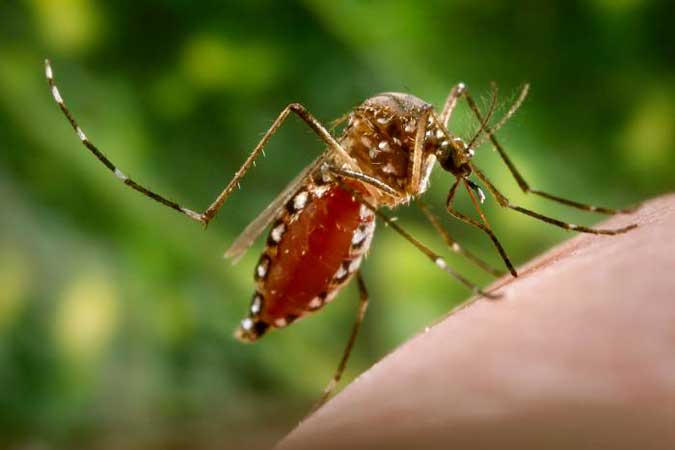
Medicine Cabinet
By Teodoro B. Padilla

Lessons learned from the coronavirus disease 2019 (COVID-19) pandemic can be applied to prevent dengue outbreaks in the Philippines and enhance the country’s outbreak response, according to health experts during the recent Health Connect forum titled “Dengue Awareness: How to Protect Ourselves from the Next Dengue Epidemic.”
“Addressing dengue requires a whole-of-society approach. The COVID-19 pandemic highlighted the importance of improved case surveillance and early diagnosis, cooperation between public and private sectors, and responsible health communication,” said physician and medical anthropologist Dr. Gideon Lasco, senior lecturer at the Department of Anthropology of the University of the Philippines Diliman.
Dr. Lasco noted that disease is determined by social, economic, and environmental factors. “This is why we need to adopt a holistic approach that involves the government, the community and the private sector, which is more comprehensive and more effective in the long run.”
Dr. Beverly Lorraine Ho, Director of the Disease Prevention and Control Bureau of the Department of Health (DoH), agreed. “LGUs [local government units] and local communities supported by non-governmental organizations and the private sector serve as the backbone of our dengue response. Successful implementation of key strategies relies heavily on the active participation of community members.”
The DoH has deployed a number of dengue prevention and control strategies anchored on intersectoral collaboration. The “4 o’clock habit” vector control program rallies community members, including housewives, students, and office employees to work with the LGU to search and destroy mosquito breeding sites at 4 p.m., which is the time when mosquitoes carrying the dengue virus are most active.
The Enhanced 4S Strategy encourages households to “search and destroy” mosquito-breeding sites; employ “self-protection measures” like wearing long pants and long-sleeved shirts; “seek early consultation” if one develops symptoms associated with dengue; and “support fogging/spraying” only in hotspot areas with documented increase in dengue cases for two consecutive weeks to prevent an impending outbreak. The DoH also conducts periodic anti-mosquito fogging and misting, and larval trapping activities as part of vector surveillance.
Proactive communication of dengue prevention, transmission, and symptoms are crucial in enabling community members to protect themselves against the mosquito-borne disease, Dr. Ho stressed. Symptoms of dengue include sudden onset of fever of 2 to 7 days, plus two of the following: headache, body weakness, joint and muscle pains, pain behind the eyes, loss of appetite, vomiting, diarrhea, and skin rashes. Adequate information can be a catalyst in promoting proper health-seeking behavior such as seeking early consultation at the nearest health facility if dengue symptoms develop, she added.
The DoH emphasized the need for continued vigilance, noting that dengue infected about 400,000 Filipinos and caused more than 1,000 deaths in 2019, prompting the DoH to declare a national dengue epidemic that year. They believe that stay-at-home directives as part of COVID-19 community quarantine protocols may have complemented dengue prevention and control strategies, resulting in a significant decrease in dengue cases and deaths since the pandemic began. DoH data showed an 81% decrease in dengue cases and deaths for 2020 compared to 2019, with a continued 55% decrease in cases and 56% decrease in deaths during the same time period.
“While we celebrate our country’s gains in our fight against dengue, we must always keep our guard up to protect the people from this threat. There is a cyclical rise and fall in the number of dengue cases in the Philippines, with outbreaks occurring every three to five years. The country cannot risk another surge of dengue infections that would further burden our health system. We encourage communities to practice the DoH 4S strategies to prevent a dengue outbreak and protect our children and their families during these challenging times,” Dr. Ho said.
Dengue has caused immense human suffering for individuals and families, and has also resulted in huge health and economic burden for the country. Dengue is a cyclical disease which the public cannot be complacent about. Lessons from the COVID-19 pandemic could be well applied in preventing a surge in dengue cases. There is need to prepare while cases are low. Preparations must center on close monitoring or disease surveillance, responsible health communication, strengthening of the health system and a whole-of-society approach in the fight against this vector-borne disease.
Teodoro B. Padilla is the executive director of the Pharmaceutical and Healthcare Association of the Philippines (PHAP). PHAP represents the biopharmaceutical medicines and vaccines industry in the country. Its Members are in the forefront of research and development efforts for COVID-19 and other diseases that affect Filipinos.